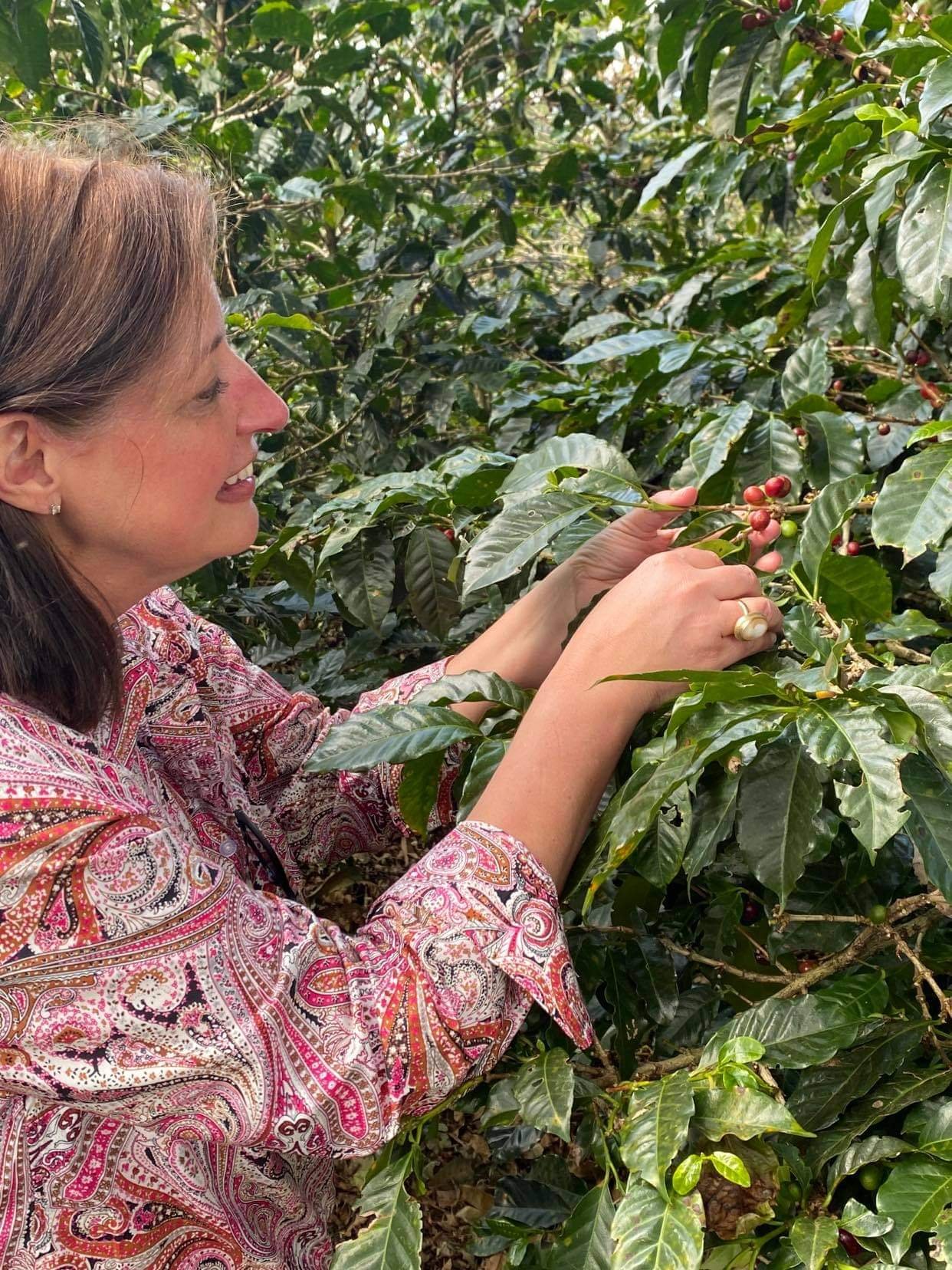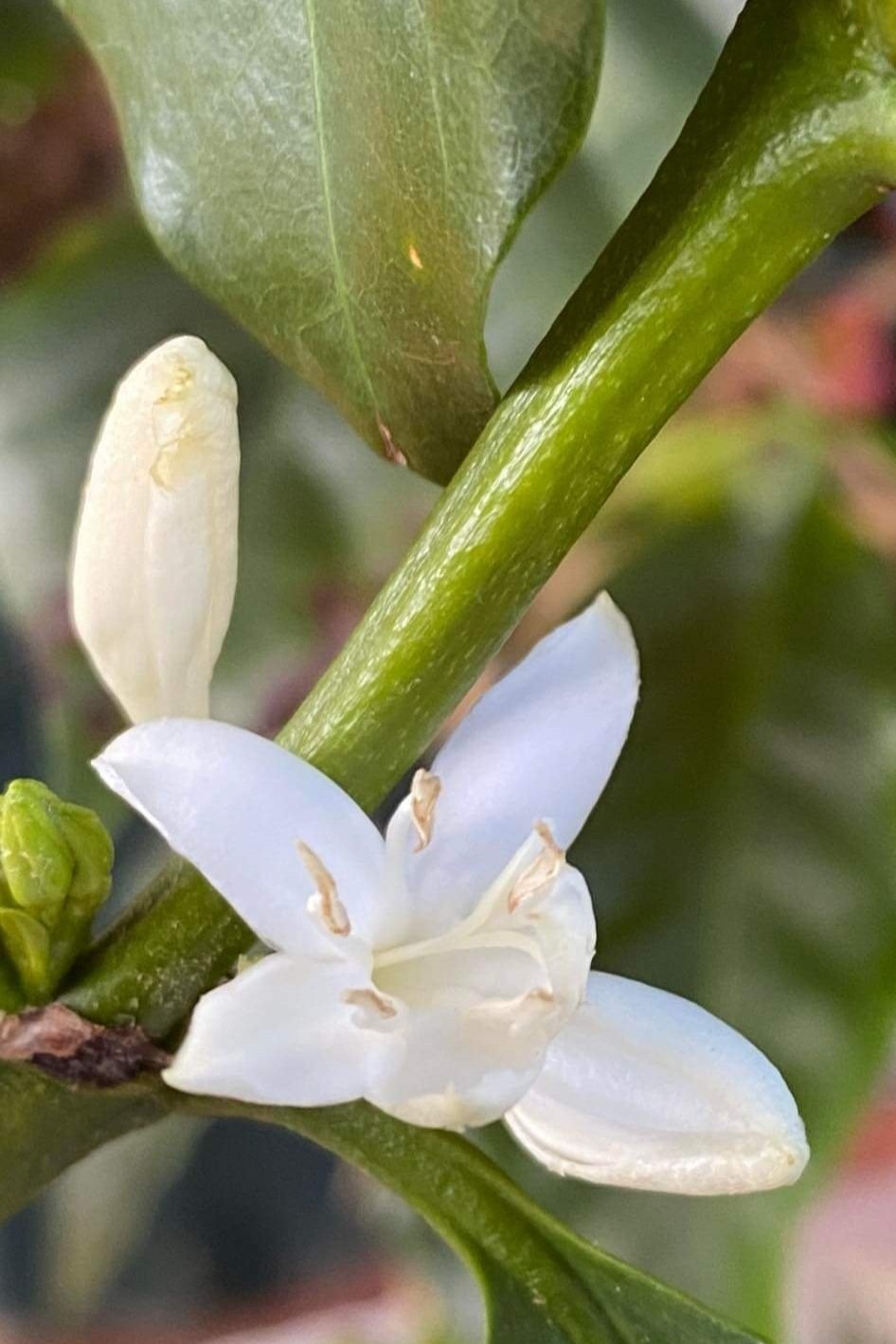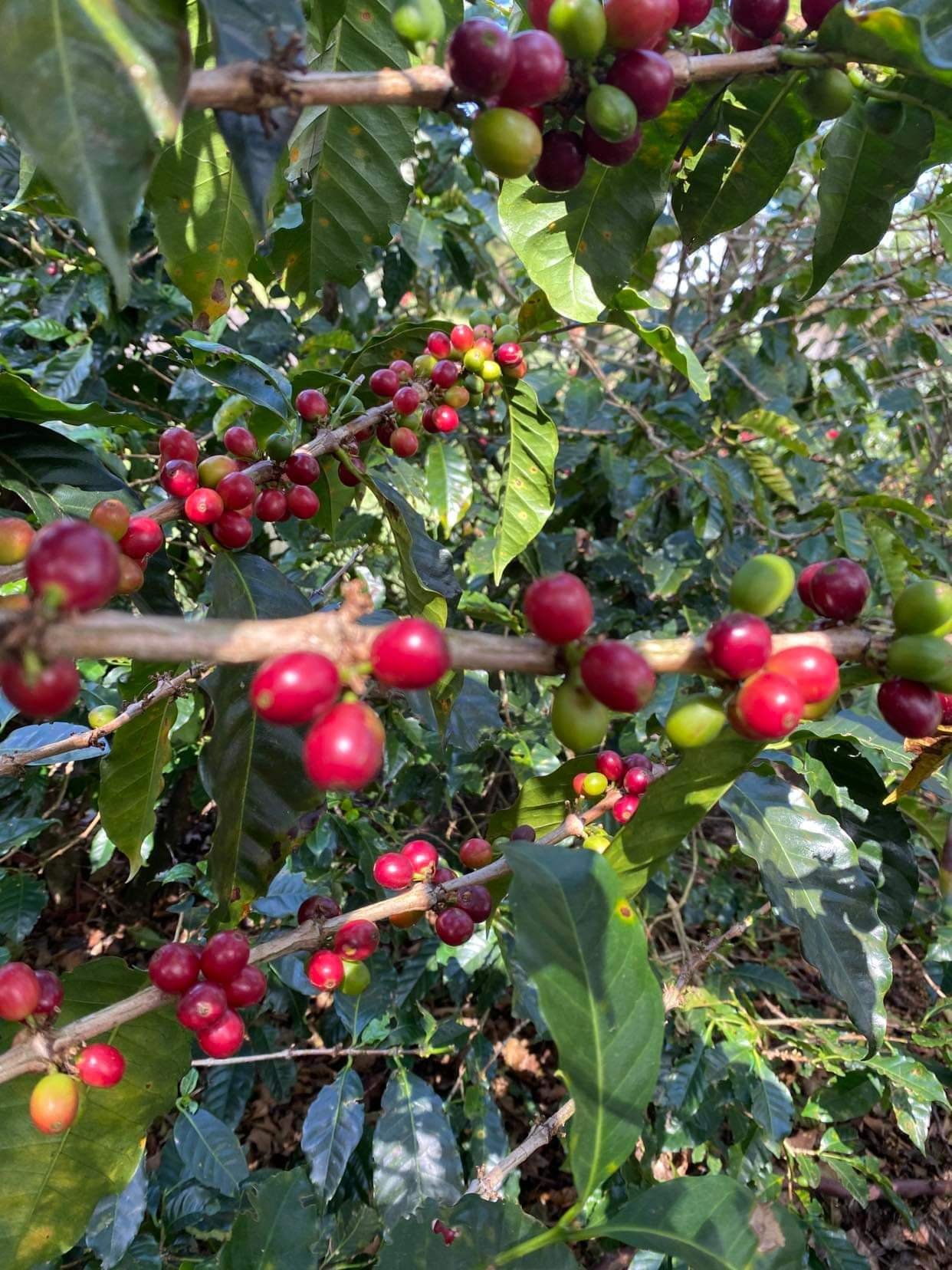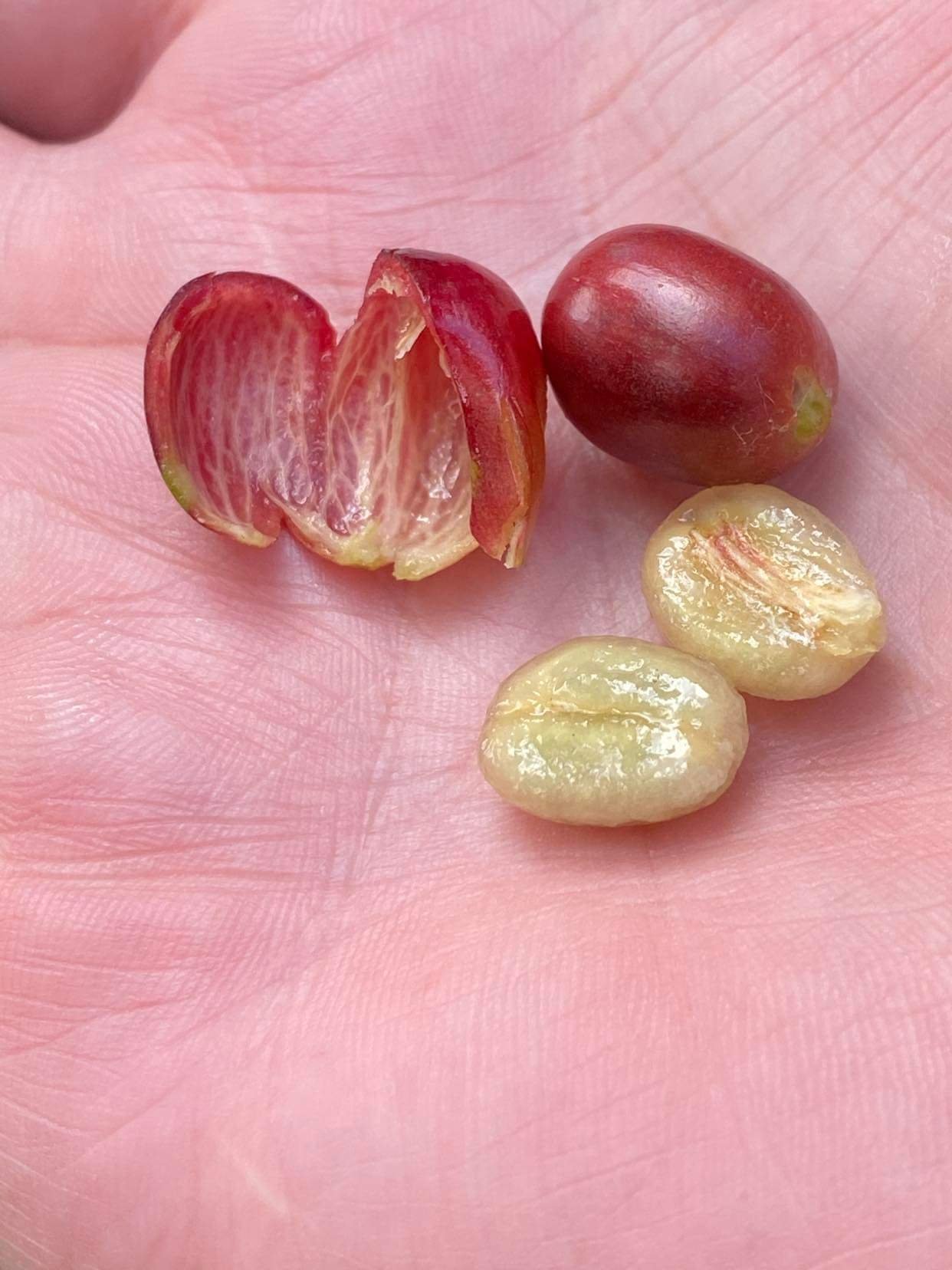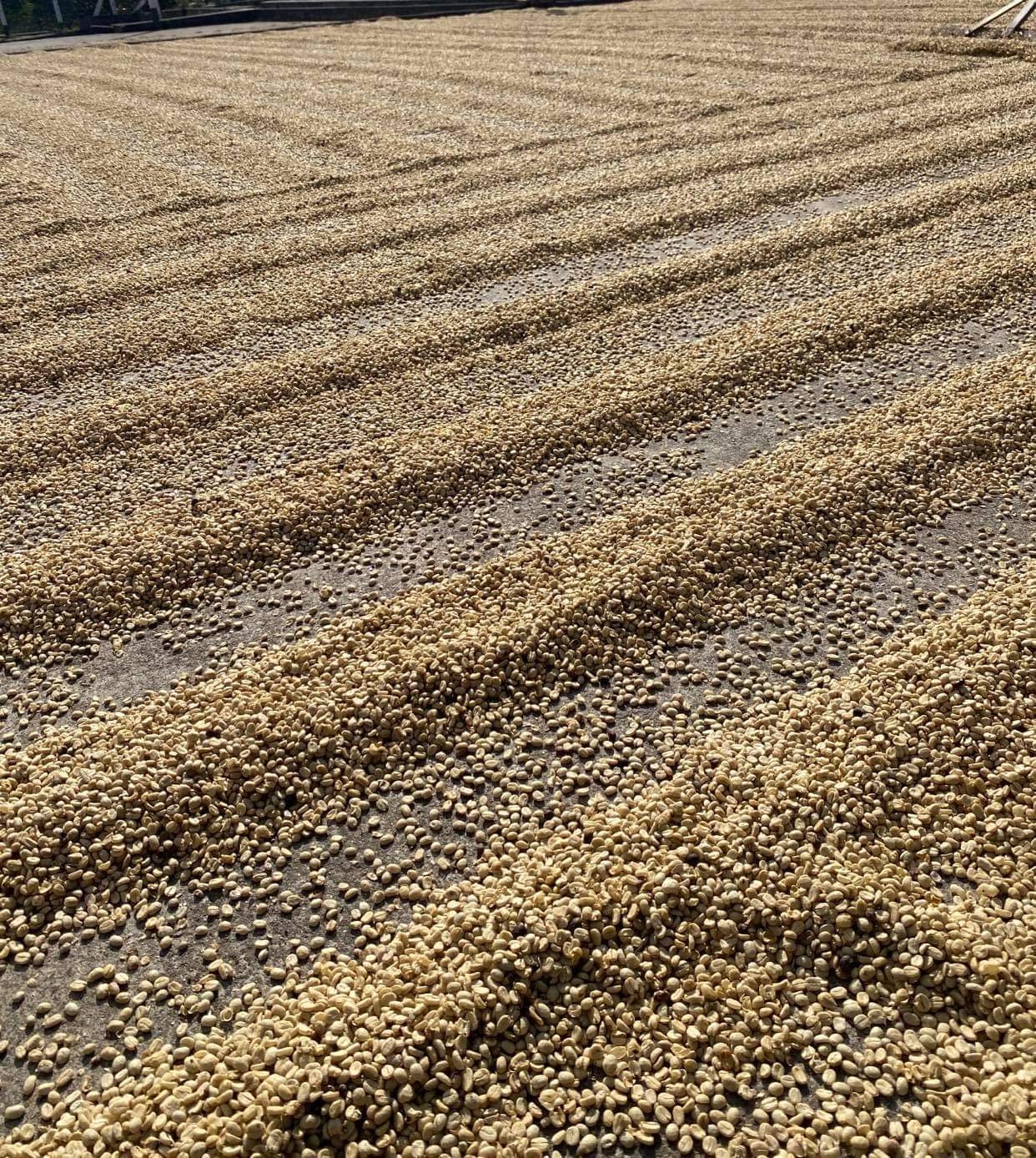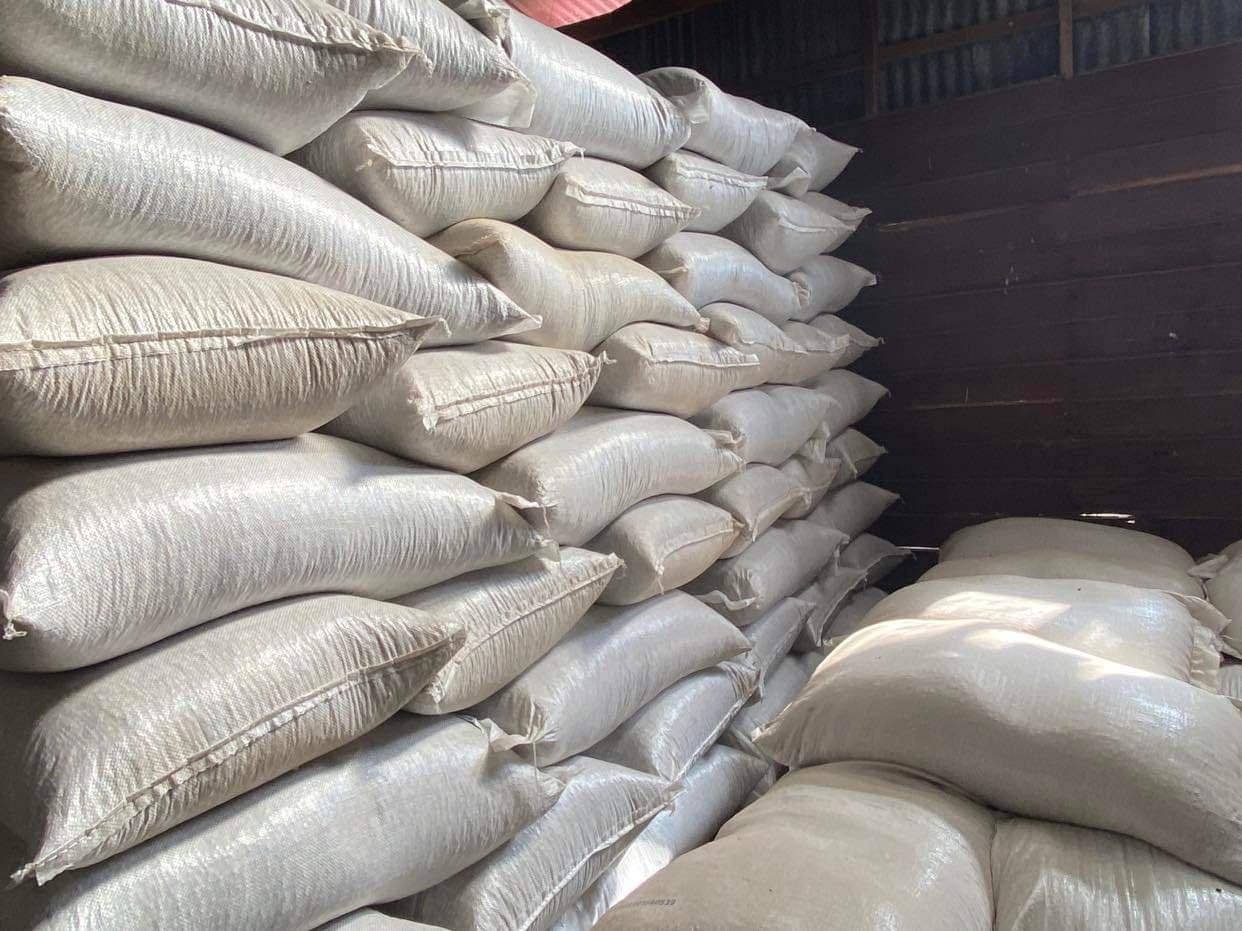You Had Me At Coffee
Esther Boe
LSU Ag Leadership Class XVII
LSU Ag Leadership Class XVII member Esther Boe looks at ripe coffee fruit on the trees at Doka Estate Coffee Farm.
When our Ag Leadership class first arrived at our hotel in Panamá, I noticed the phrase below hanging prominently in the bar. Right above the French press and coffee grinder.
“I don’t need an inspirational quote, I NEED COFFEE!”
Relate? Me too. Coffee is an experience. Drinking coffee is a ritual in my world. A great way to start our day, a way to sit and visit with friends, and never a boring habit since there is a creative and considerable list of options to consume this bitter bean.
Americano, Espresso, Cafe’ au lait, Macchiato, Frappuccino, and just plain Joe…….there’s a LATTE to consider when you’re ordering coffee.
In Panamá and Costa Rica our class enjoyed coffee with a few twists. And we did our absolute best to have as much of the fresh brew as possible.
Our Ag Leadership coffee plantation visit was highly anticipated by me, an avid coffee drinker. The landscape and weather were picture perfect.
Our coffee tour brought us to Doka Estate, a family owned plantation with three generations of farmers. We learned how coffee beans are grown, harvested, processed, roasted, and of course, brewed.
The flowers on the plants were dainty and aromatic. Perfect attraction for Costa Rican mariposa (butterfly) to pollinate.
Coffee production includes an incredibly tedious process:
-hand picking the red beans only
-removing the fruit
-peeling the bean
-drying outside for 5 days
-moving the beans for air ventilation
-and finally, ROASTING. The best part because the smell was unbelievable.
Panamá produces Geisha coffee, which is considered the most expensive coffee in the world. And, Costa Rica, has a highly desirable coffee known as Tarrazu. Tarrazu is a region, not a coffee variety.
The arid temperatures in this warm climate, coupled with heavy rainfall, provide perfect conditions for growing the delicate plants. At an elevation of 5,000 feet, the coffee plants thrive in volcanic ash with a soil ph of 3.5. The plants are surrounded by tall trees that provide shade.
Costa Rican farmers get a nod from the government as coffee grown in the country must be 100% Arabica and therefore quality controlled. Actually, Costa Rica passed a law in 1989 prohibiting cultivation of any other beans to prohibit low quality and to promote high standards.
One speaker today shared that he didn’t feel that Costa Rican farmers got the praise that their coffee crop deserved because their high quality coffee is sometimes blended with lesser beans to bring the standard up for other varieties.
LSU Ag Leadership Class XVII member Esther Boe helped turn the coffee beans as they dry in the sun at Doka Estate Coffee Farm as her classmates looked on. Many of the class followed her lead and gave it a try.
We learned that both Panamá and Costa Rica produce coffee and the beans from both countries are among the best in the world.
After drinking coffee while touring in Central America, I’m going to try to become discerning about my selections. It’s not that I’m now a newfound coffee snob, it’s just that after this experience, I’ve learned that some beans just brew up better.

